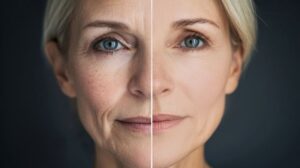
The quest for youth is almost universal. Many individuals pour great efforts into staying young, healthy, and strong. That might involve a strict exercise routine, good skincare products, and a nutritious diet. While all of those things can be beneficial, one crucial factor that often gets overlooked is sleep quality. Sleep apnea, a common yet serious sleep disorder, may play a significant role in how quickly the body ages. Continue reading this blog post to learn more about this startling connection.
Understanding Aging: Chronological and Biological Age
Before examining the connection between sleep apnea and aging, it is important to discuss the two main ways in which aging is measured: chronological age and biological age.
- Chronological age: This is the total number of years you have been alive. It increases predictably with the passage of time.
- Biological age: This reflects how well the body and its genes function compared to what is typical for your chronological age. Biological age is influenced by lifestyle choices, environmental exposure, and underlying health conditions. For example, you may be fifty years old by the calendar, but your body may function like someone much younger or older, depending on these factors.
How Sleep Apnea Accelerates Aging: What Research Reveals
Recent scientific studies have demonstrated a connection between sleep apnea and accelerated biological aging. In a significant 2019 study that involved over 600 participants, researchers discovered that sleep-disordered breathing, such as sleep apnea, can hasten the aging process at the cellular level. The severity of sleep apnea was found to directly influence how much faster biological age increased. Additional research published in 2022 further supports these findings, showing that poor-quality sleep is linked to faster biological aging.
These results suggest that sleep apnea does more than just disrupt nightly rest; it may also impact longevity and increase the risk of developing age-related chronic conditions.
Recognizing Sleep Apnea: Key Symptoms
Obstructive sleep apnea is one of the most widespread forms of sleep-disordered breathing. Millions of people are affected, and sadly, many of them remain undiagnosed.
Recognizing the symptoms of sleep apnea is the first step toward effective management! Look out for these signs in yourself and your loved ones:
- Persistent, loud snoring that interrupts sleep or disturbs others nearby
- Episodes where breathing stops during sleep, often noticed by a partner or family member
- Abrupt awakenings at night, sometimes accompanied by gasping for air
- Morning headaches or a sore throat
- Daytime fatigue and sluggishness
- Changes in mood, including increased irritability
- Frequent trips to the bathroom during the night
Taking Action: The Importance of Diagnosis and Treatment
If you suspect you have sleep apnea, consulting a healthcare professional is vital. A proper diagnosis can open the door to effective treatment options. For example, many patients find that oral appliances provided by dentists offer a convenient way to manage their condition. When you start consistently using your treatment, you may find that you feel better on a daily basis. You may even be able to slow down or even slightly reverse your biological age!
Meet the Practice
Dr. Ashraf Seif is an award-winning dentist with more than 20 years of experience in his field, and he has proudly served the Baytown community since 2014. Under his expert leadership, our practice helps patients with sleep apnea by providing custom oral appliances. If you have been struggling to get enough high-quality sleep, our team can guide you on your next steps. Contact Baytown Gentle Dental at 281-837-9122.
